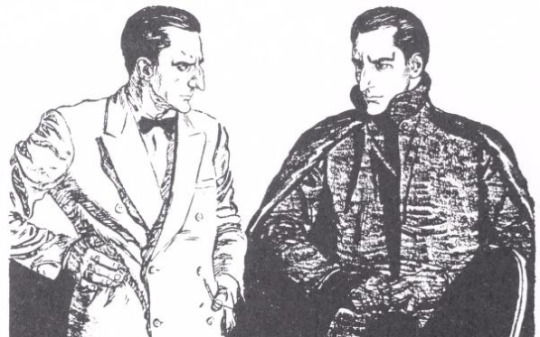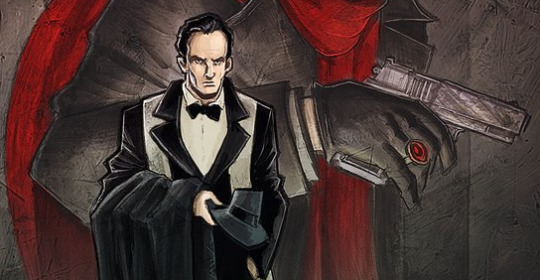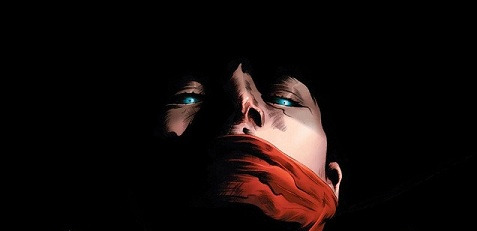#it sucks that even when you wear cultural garb you are still just. seen as white
Explore tagged Tumblr posts
Text
that's what I'm saying! being biracial is such an isolating experience because your racial identity is not taken seriously no matter where you go. I'm black and white, and I look so obviously mixed that I cannot blend in anywhere. When I was younger I tried my damn near hardest to be white, but stuff like my hair would give me away. My skin color is very light, but not quite white passing since it's a little too colored for that. It sucks. It's a limbo between not feeling black enough and not being white enough either.
being biracial between white and poc will always be so alienating for me I don't relate to anyone. I don't quite fit in with whites but I don't quite fit in with people of color. been more white passing than the rest of my family doesn't help
#poc#biracial#biracial black person#indigenous#I'm not indigenous but OP is#it sucks that even when you wear cultural garb you are still just. seen as white#I don't have access to the garb of my own culture but if I did have access to it#I would probably just be written off as another Elisabeth Warren situation#and that's insulting because it's in my heritage#I have a right to celebrate my culture and if I knew what that was I would#but since I'm biracial and since I'm light skinned#I am not taken seriously as a black person#sorry for making this post about me it just hit so close to home
12 notes
·
View notes
Note
Thoughts on the Shadow's Doppelganger, Lamont Cranston

The funny thing about Cranston in the original stories is that, yeah, one of the most famous scenes across all Shadow media is the “Lamont Cranston Talks to Himself” chapter in The Shadow Laughs, where we learn that The Shadow is not Lamont Cranston, but has usurped his identity, and now shows up at his bedside looking like him, talking like him, knowing more about his own life than he himself does, and ordering him to leave town, effectively blackmailing him into letting him use his face. It’s a very iconic scene that exemplifies a lot of what makes The Shadow unique as a character, and you can imagine why so many adaptations have gone with the idea of Cranston being either a hapless stooge bullied into submission, or an actual villain, because that whole scene is very much a horror movie scenario.
Thing is, none of them seem to remember how Cranston and The Shadow’s relationship developed past this. I’ll post this excerpt from Atoms of Death:
"Good morning, Cranston," came a quiet tone from the foot of the bed.
"Good morning, yourself," returned Cranston, rubbing his eyes without noticing the visitor.
"You should say: Good morning, myself," chuckled The Shadow, dryly.
Cranston was pulling down the sleeves of his pajama jacket. He sat bolt upright, staring. Then a slow smile showed on his lips; one that was almost a replica of The Shadow's.
"So it's you," remarked Cranston, sleepily. "Well, I knew that last night. It was about time we crossed paths again. Well, old man, you landed me in for plenty this trip."
Cranston shoved bedclothes aside and perched on the edge of the bed. He found cigarettes on the telephone table; The Shadow supplied a flame from a lighter before Cranston could ignite a match. The millionaire noted that The Shadow's lighter bore the initials "L. C."
"You handle every detail, don't you?" questioned Cranston in admiration. “Jove! I remember the first time I met you. In this very room. You dropped cloak and hat and left me looking at my own face as plainly as if I had seen it in a mirror. Just as it is today."
"And I advised you," recalled The Shadow, in Cranston's own tone, "to take a trip abroad, while I used your identity. You were a bit exasperated at first."
"I must admit that I was. I threatened to have you arrested, as an impostor, until you proved that you knew more about my affairs than I did. I really believe that if it had come to a showdown, I would have been proven the impostor and you the genuine Lamont Cranston. Jove!"
"Jove," repeated The Shadow, quietly, "You have acquired that expression recently, Cranston. I shall remember it for future reference. You have a penchant for acquiring anglicisms during your sojourns in British colonies. Jove!"
"Bounder and blighter," laughed Cranston. "Don't forget those. I still use them occasionally."
Or this excerpt from The Hydra, which is an incredible book where the chemistry between the two really shines:
Lamont Cranston woke up and wondered why his head still whirled. It took him about half a minute to learn that the motion came from the fact he was riding in his limousine. Someone must have put him back in the limousine and Stanley was driving him home.
He didn't have to guess who had helped him on his way, for at that moment Cranston heard a low-toned laugh beside him. He turned to see the black-cloaked figure of The Shadow.
"What did you hit me with?" asked Cranston. "All four of your automatics?"
"I'm only carrying a pair tonight," replied The Shadow
Look at these two dorks, just palling around and getting into shenanigans and The Shadow outright joking around Cranston, like they are just two old chums having a laugh at the weirdness of their lives. The “real” Cranston didn’t show up very often in the original stories, especially in the last stories when Lamont Cranston essentially became the real identity of The Shadow, but when he did, part of what makes him stand out as his own character is that he’s funny. Gibson gets a lot of mileage out of Cranston as this guy who is completely nonchalant and chill about all the weird shit that happens to him, even in The Hydra after he kills a man with an elephant gun, he’s still more or less the same, he largely just walks out of it with a newfound realization.
Relieving Cranston of the elephant gun, The Shadow steered his friend into the closet. Hauling the big weapon with him, The Shadow opened the door to meet and dismiss arriving servants who had dashed upstairs when they felt the house quake.
"Whenever I see this gun," began Cranston, coming from the closet, "I'll remember what I did with it -"
“Quite right," interposed The Shadow approvingly. "What you did to Mance will make amends for any elephants you may have killed. Too bad Mance didn't bring along a few more Hydra Heads.”
Slowly, understanding dawned on Cranston. He'd never compared his big-game hunts with The Shadow's quests for men of crime. He felt that The Shadow's cause was justified, but it had seemed outside the field of sport. It still was, but Cranston, now that he had dealt with a murderer who deserved to die, was realizing that his game hunts were more deserving of rebuke.
His encounters with The Shadow gradually changed Cranston from a useless millionaire wasting his resources and talents on idle pursuits, to...still largely a useless millionaire, except his resources and talents are no longer wasted and he’s gradually grown into a useful ally and friend to The Shadow. The Shadow tends to have that effect on people who work by his side and even Cranston, the guy whose main role in his organization is to just stay away and be useless somewhere else, can’t help but change a little into a better person when he appears.
There’s an interesting article written by Bob Sampson called “The Third Shadow” which refers to the Bruce Elliot run of The Shadow Magazine, which is incredibly maligned by fans and not without reason, the stories all largely suck and the Shadow bears little resemblance to his former self, instead mostly feeling like a diet take on the radio show Lamont, more of an average detective. The theory Sampson puts out is that, during this period, it was actually Lamont Cranston who became active as The Shadow while Allard was busy overseas, and I definitely like this theory. It makes sense specially considering The Hydra sets up for Cranston to become more pro-active and serious:
While not the towering master-mind of Allard, he does become the next best thing: A post-war sleuth. He even indulges in wearing the cloak and slouch hat from time to time (to varying degrees of effectiveness), while trying to laugh like Allard (also to varying degrees of effectiveness) as if to fulfill that forbidden fantasy until he finally gets it out of his system. After all, The Shadow pretended to be him, why not the other way around?
As Bob Sampson put it: “It is always Cranston who explains all and takes the credit”.
Probably very cathartic for Lamont, who for the last 18 years was relegated to being a distant supporting player in his own life. Cranston is still in contact with the agents however. He even receives "assignments" from Burbank.
This entire arrangement could only be with The Shadow's tacit approval. Let us remember, Cranston was not merely some insipid fop. He certainly had done his own share of exploring and was indeed a hunter. He could handle a variety of firearms, was familiar with exotic peoples and their customs, knew how to stalk dangerous animals through the jungle and veldt, but he was not, nor ever claimed to be, a master secret-agent and soldier.
I think it is fitting that the writing is completely different for this period as well. Not the enigmatic journalistic style of Allards exploits, but the witty, modern champagne fizz of Cranston's odyssey in a Post-War world. He feels a full range of emotions. In the Gibson stories, The Shadow is at arms length. In the Elliott stories, Cranston is sitting right next to you on a train or an airplane or roadster.

It’s also interesting to consider how Lamont Cranston has basically become the true name of The Shadow in pop culture. Often times it’s the name people use when they specifically want to reference The Shadow, the supposed “Ghost of Gay Street” hauntings in Gibson’s former apartment took the form of Lamont Cranston, and even in the stories, more and more people became aware of it as the years went by (which also helps reinforce the idea that the “real” Cranston eventually took to acting as a fill-in for The Shadow, to draw attention away from the real Shadow’s operations), and Gibson even mentioned a few times that Cranston was The Shadow’s “favorite” identity along with Arnaud. Which is kinda fascinating to think about and does hint at some weird underlying aspects of The Shadow’s psyche, that his favorite identity is one not his own.
And at last, there’s these passages from The Whispering Eyes, a book that does not mention Allard once, and the very last Shadow novel:
From beneath the seat he was taking his black garb. Cloaked and hatted as he stepped from the cab, Cranston merged immediately with the darkness. He had become The Shadow.
Cranston's switch to his other self could well be attributed to a hypnotic mood. The mental lapses produced through hypnosis were the sort that would often cause a subject to revert to habit. Now, as The Shadow, Cranston was still in what might be termed a haphazard mood. He was skirting through darkness, pausing, changing direction, behaving generally as though avoiding something that did not exist.

Lang had flung away his glasses; his eyes now showed the shining, hypnotic force that the lenses normally softened. He recognized the eyes that met his above a leveled gun muzzle.
The Shadow's eyes, yet strangely Cranston's, for this was one time The Shadow did not care to disguise them.
Which begs the question: Did Cranston succeed in fully becoming The Shadow? Or did The Shadow succeed in fully becoming Cranston?
23 notes
·
View notes
Note
(1/2)You’re desi so I’d like to ask you something. I’m Indian, Any time I ever worse anything slightly cultural, Mehndi, Urna, salwar Kameez, I’d be made fun of because it was weird and tacky. But then I’d go to Jackson Heights and see white people getting Mehndi during Chaand Raat. Just the whitest people who didn’t even know what was going on. I’ve seen white people wear Saris for no reason, and they’re called cultured, and interesting.
tumblr ate the second half of your ask so I’m not really sure if what I’m about to say will answer your question, but here’s my hot take:
it fucking sucks, and I hate it.
And that’s coming from me, an Indian who lives in an area with a HUGE Asian diaspora. I normally see people of my culture all the time, so I can’t really relate to the nuances of living in a society where almost everyone else around me is white (there are white people here, but there’s a considerable amount of black people, hispanic/latinx people, mixed people, and east and south asians as well)
but I really can’t stand when white people do this, lmao.
I personally find that if someone is trying to genuinely learn about our culture via participation in an event (usually religious, since I’m a hindu indian), I don’t mind if they wear our traditional dress.
I remember when I was around 13 or something this elderly white couple came to our local temple in full desi garb– the wife wore a whole sari with bangles and the traditional red bindi (that indicates a married woman) and the husband was in a sherwani, completely dressed up with his head wrapped in a turban. Being thirteen, I initially thought it was kinda weird, but they were respectful and genuinely interested in our prayers, singing, in how prasaad and all the praying rituals work. It was sweet. They wanted to learn and participate.
As a child and even now, five years later, it makes me happy to remember.
On the other hand, I’ve also seen mehendi/henna become popular, and indian cultural wear become “trendy”. While I don’t have as much of a problem with mehendi, I still don’t like how this appropriation is happening with the rest of our traditional clothing, because it’s in the context of fashion rather than cultural awareness.
Shit like this (I googled “indian themed party”)

is not okay. Even though a lot of our dress is not inherently ritualistic, it’s still part of our culture, and therefore it’s still disrespectful to wear like it’s a costume or a fashion trend.
“But Indians in India say–” forget about them. Listen to what the Indians in your own country are saying about the matter. Indians in India are used to seeing people in Indian clothes; they won’t care. Indians in America, in the UK, in South Africa or Singapore or wherever else in the world are different and white people really need to listen to us and respect us when we tell them what’s offensive and what’s not.
And don’t even get me started on religious symbols. Anon, I don’t know your religion, since desi is such a multifaceted identity, but seeing all the damn hipsters who think it’s cool to get an Om tattoo or cosplay Ganesha or get healing chakra incense or have a cartoon version of Shiva on their yoga pants and shirts (yes, I’ve seen all of these in real life) make me wanna die personally as a Hindu.
All in all…
It’s so annoying.
5 notes
·
View notes